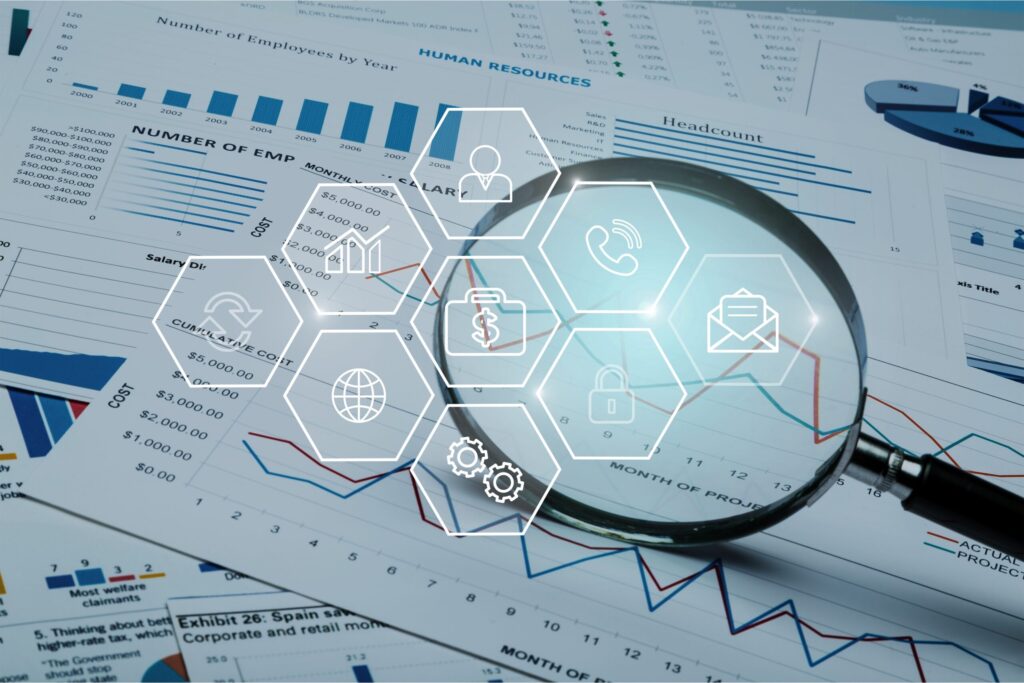Unveiling the Hidden Truth: The Profound Benefits of Forensic Accounting

In the dynamic landscape of finance, where complexities and uncertainties abound, the role of forensic accounting has become increasingly indispensable. Forensic accounting goes beyond traditional financial analysis, delving into the realm of investigation and scrutiny to uncover hidden truths. This specialized branch of accounting plays a crucial role in safeguarding the financial integrity of organizations and individuals alike. Let’s explore the myriad benefits that forensic accounting brings to the table.
Fraud Detection and Prevention
One of the primary advantages of forensic accounting is its ability to detect and prevent fraud. As financial crimes become more sophisticated, forensic accountants employ their expertise to identify irregularities and inconsistencies in financial records. By scrutinizing transactions, examining financial statements, and conducting thorough investigations, these professionals can uncover fraudulent activities, helping organizations safeguard their assets and reputation.
Litigation Support
Forensic accountants often serve as key players in legal proceedings by providing litigation support. Their in-depth analysis of financial data can be instrumental in building a strong case or defending against allegations. Whether it’s a shareholder dispute, a breach of contract, or an embezzlement case, forensic accountants bring a level of precision and objectivity that is invaluable in a courtroom setting.
Asset Tracing and Recovery
In cases of financial wrongdoing or embezzlement, forensic accountants play a crucial role in tracing and recovering misappropriated assets. By following the money trail, these professionals can identify hidden accounts, track fraudulent transactions, and assist in the recovery of stolen funds. This not only aids in restoring financial losses but also serves as a deterrent to potential wrongdoers.
Due Diligence in Mergers and Acquisitions
Mergers and acquisitions are complex transactions that carry inherent risks. Forensic accounting adds a layer of due diligence by thoroughly examining the financial health and integrity of the entities involved. This proactive approach helps in identifying potential risks, uncovering undisclosed liabilities, and ensuring a transparent and smooth transition, thereby safeguarding the interests of all stakeholders.
Risk Management and Compliance
In an era marked by increasing regulatory scrutiny, compliance with financial regulations is paramount. Forensic accountants assist organizations in navigating the complex web of regulations by conducting risk assessments and implementing robust compliance frameworks. By identifying potential areas of non-compliance and implementing preventive measures, forensic accounting helps organizations mitigate risks and avoid legal consequences.
Business Valuation
Accurate business valuation is crucial for various purposes, including mergers, acquisitions, shareholder disputes, and estate planning. Forensic accountants employ specialized techniques to assess the true value of businesses, considering both tangible and intangible assets. This ensures that transactions are based on reliable financial information, preventing disputes and fostering fair and transparent dealings.
Cybercrime Investigations
As businesses increasingly rely on digital platforms and technology, the risk of cybercrime has surged. Forensic accountants extend their expertise to investigate financial aspects of cybercrimes, including data breaches, ransomware attacks, and fraudulent online transactions. By collaborating with cybersecurity experts, they contribute to the identification and prosecution of cybercriminals, minimizing financial losses for organizations.
The Powerful Benefits of Forensic Accounting
Forensic accounting is a powerful tool that goes beyond traditional financial analysis, uncovering hidden truths and providing crucial insights. From fraud detection and litigation support to asset tracing and business valuation, the benefits of forensic accounting are far-reaching. As organizations navigate an ever-evolving financial landscape, the expertise of forensic accountants becomes an invaluable asset, safeguarding financial integrity and ensuring transparency and compliance.
In a world where financial risks are abundant, the role of forensic accounting stands as a beacon of trust and reliability.
